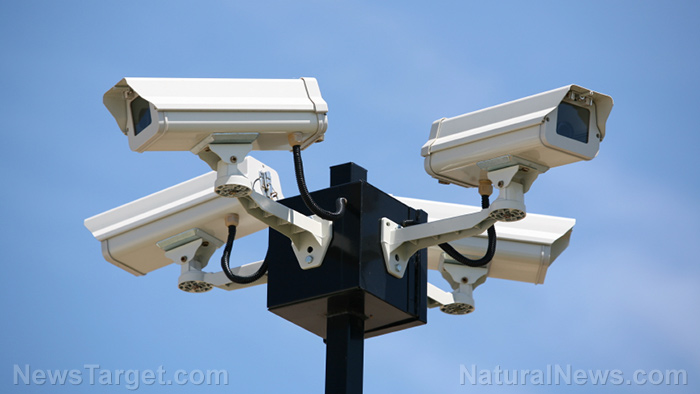
California just purchased a slew of facial recognition cameras to SPY on all citizens, 24 hours a day
Monday, May 15, 2017 by Jayson Veley
http://www.privacywatch.news/2017-05-15-california-just-purchased-a-slew-of-facial-recognition-cameras-to-spy-on-all-citizens-24-hours-a-day.html

It used to be that security cameras on street corners and elsewhere were only capable of producing blurry, hard to see video footage. But now, it appears that big brother is all grown up.
The California Department of Justice (CDOJ) has recently invested nearly $1 million in new facial recognition technology. According to an article published in Muckrock, NEC’s NeoFace System has been spying on Californians for over a year now, since April 26, 2016. Adding insult to injury is the fact that the taxpayers of California have been funding this, paying NEC roughly $650,000 each year. In other words, the California Department of Justice has been taxing their own people in exchange for what many would consider to be a violation of their constitutional freedom. (RELATED: Read about how Facebook uses facial recognition technology to track people across the Internet).
As further evidence that the Bill of Rights has been thrown out the window yet again, contractors were instructed to destroy all evidence of their collaboration with the CDOJ once the technology was installed. What other reason could the California Department of Justice have for doing this other than to hide the extent of their new spying program from the public? If this doesn’t scream “assault on individual liberty” then nothing ever will.
In the interest of fair and balanced, it is important to note that more than likely, the intent of the California Department of Justice is not a bad one. Obviously, they didn’t choose to set up this facial recognition technology just for the sole purpose of spying on random people as they walk down the street. Indeed, it is easy to see how such technology would be able to help law enforcement track down criminals in a relatively short amount of time, thus potentially creating a safer environment for everyone. But more safety should seldom come at the expense of the constitutionally protected liberties of the American people.
When it comes to the law, safety and privacy are a balancing act. Ben Franklin once famously argued, “they who can give up essential liberty to obtain a little temporary safety deserve neither liberty nor safety.” In other words, Franklin believed that the pursuit of liberty was more important than the pursuit of safety because, without liberty, there never will be any safety. When the federal government has so much power that they are able to provide the people with 100 percent security, then they have enough power to do many other things at the peoples’ expense.
California isn’t the only place where the government is using facial features to identify its people. China has been in the news lately for the introduction of similar facial recognition technology that they are using to combat toilet paper theft. At the Temple of Heaven in Beijing, those who have to use the bathroom must now stand in front of a camera-equipped dispenser in order to get just two feet of toilet paper. Once they get it, the facial recognition technology inside of the dispenser will not let that same person get more for another nine minutes.
The goal, according to a park manager who was interviewed by NBC News, is to “cope with the behavior of taking public toilet paper home which is theft and abuse of public resource.” The park official added, “We decided to use face recognition technology as our latest measure to curb excessive paper use which affects the interests of other users.”
Naturally, not all of China’s citizens were too pleased with the technology. On Weibo, which is essentially China’s version of Twitter, one user wrote, “How pathetic. Why do we need to be supervised on EVERYTHING!” Although park officials argue that the facial recognition toilet paper dispensers don’t use the images for any other purposes, the fact remains that just like in the state of California, the world is looking more and more like George Orwell’s 1984 novel with each passing day.
Sources:
Tagged Under: Tags: California, Facial recognition, spying, surveillance





